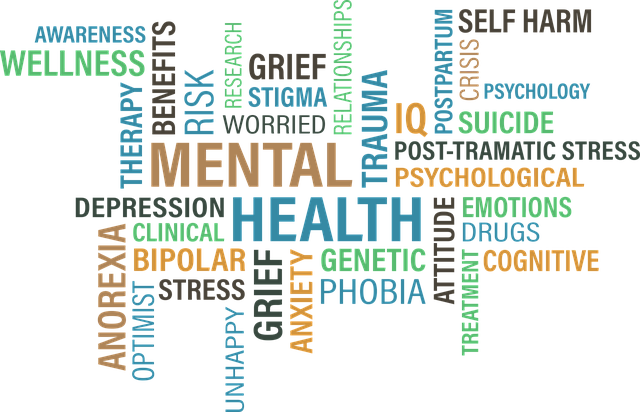In my own personal therapeutic recovery, I have come to understand some important truths about why I am who I am, and what causes me to function in ways that I’d like to overcome.
For example, I’ve been trying to work through why I assume I know what people are feeling, just by judging from body language and facial expression. Why do I get up and leave at the first sign of conflict, or freeze when I’m unable to get away? Why is it that I experience anxiety so severely that it affects my physical health at times? Am I naive about the intentions of predatory people, or do I just freeze when I get those predatory signals? What causes me to stay in situations where I feel unsafe? How is it that I can feel so emotionally numb when I’m trying to spend time with those I love? What causes me to freeze into silence when I’m around my extended family or in a religious setting?
These questions, and others, recently led me into a very deeply informative session with my therapist. Assuming that I knew what a loved one was thinking and feeling brought me into a confused state, as I saw how wrong I was. My therapist, having worked with me for three years, knew much about my life growing up and my background of spiritual abuse. He pointed out to me how this ability and talent to read others was a very adaptive skill for when I was in the abusive environments. My physical and emotional safety depended, oftentimes, on being able to properly read these cues from parents and religious leaders. Later, this ability allowed me to keep my children from worse abuse from their father, and made me hyper-aware of his moods in order to try to maintain a safe environment. Though I often failed in that protective role, I was able to prevent things from being worse than they were, by that adaptive skill I learned in childhood. However, now I no longer need this adaptive coping mechanism in my daily life. New relationships are with healthy individuals who will plainly tell me if they feel angry at me, and be upfront, safe, and secure about it. The skill that I once needed for survival is no longer helpful, but in many ways has become a detriment in my relationships with healthy individuals.
In my many years of experiencing the power of male anger in a world where females were subservient or “submissive,” that anger was destructive. Avoiding it at all costs was important. Even female anger from an authority figure could be damaging. As a highly sensitive individual to start with, it wasn’t just the slaps and posterior beatings that I feared. It was the shame…the condemnation…the spiritualizing of human errors as sin. If I angered someone in an authority role it meant I was “sinful” in some way…”a nagging wife,” “not submissive,” “rebellious,” “lazy,” and other accusations could be thrown at me if I managed to anger someone in authority in any small way. This is the power of spiritual abuse–being able to apply spiritual context to things that are not, in fact, of a spiritual nature, in order to control others. So, after being born into such an environment, and spending over thirty years of my life entrenched in these situations, is it any wonder that my innate response to anger is to flee, or to freeze? Anger is traumatic in my inner world.
Anxiety has been my haunting nemesis throughout my recovery. It seems that I can never get away from it. Although I’ve made tremendous leaps of growth and have become highly functional in the facets of life that were formerly unknown to me, I daily battle anxiety. My best new coping skill is avoidance. If I can avoid the anxiety triggers, I’m able to maintain calm and functional life skills on a daily basis. However, it is unrealistic to be able to avoid all triggers and still live in the world. Learning to handle stressful situations in a professional and appropriate manner doesn’t mean that the inner anxiety is non-existent. In fact, the very fact of learning to stay in the situation and outwardly handle it appropriately instead of running away comes at a very high price. Nightmares haunt me after such events. Strange physical reactions occur that have no medical explanation–like the most recent, waking in the middle of the night with full body tremors that were uncontrollable and involuntary. Full blown panic attacks that left me gasping for air and grasping my chest in pain. The embarrassment and helplessness of such incidents is tremendous. I hate not having control of my body and my emotions. However, when trauma is in one’s past, these are not controllable issues. The body responds to the stressor with or without your permission.
I have been re-traumatized repeatedly by trusting unhealthy people in my life, from church situations to job related incidents, and on to friendships and personal relationships. In almost every one of these cases since leaving the spiritually abusive environment, I appeared to be naive in my trusting of these individuals and then experiencing their abusive advances. As I sat in my therapists office discussing why I am so “naive” and “gullible,” I didn’t get any concrete answers. It was only later, when reading a book for work, that the answer came to me and I knew the truth. It is not naivety that has landed me in these situations. It is the trauma in my past. Back in those times, I coped by freezing because I could not run away from the situations nor could I fight–for running away would be “backsliding” and fighting would be “rebellion,” both severe sins that would send me to hell. Freezing was my only option. Along with the freezing, I would use self talk to keep me from running–“Don’t be dramatic, everything is fine,” “don’t make a mountain out of a molehill,” “don’t be dirty minded, he’s not hitting on you,” etcetera. As a result, I was able to keep myself in situations that were truly unsafe, but it kept me from the condemnation that was so powerfully used in spiritually abusive environments. These learned responses to unsafe situations have followed me into my present functional life. It isn’t that I’m not able to recognize the un-safeness of a situation, but rather that I’ve been conditioned to stay and endure the situation. Learning to listen to that inner alarm bell and allow myself to flee in such situations is an ongoing work in progress.
I recently became aware that feeling emotionally numb is an aspect of post traumatic stress disorder. Although, to my knowledge, I’ve never been formally diagnosed with this disorder, I definitely could diagnose myself with it. The inability to be fully present with those we love is an important indicator of traumatic stress from the past. I have noticed this aspect in my life repeatedly. Although it affects my relationships with friends and extended family, the worst part is how it affects how I relate to my own children. I work very hard to overcome this and my children have a very close and warm relationship with me. Inside myself is where I feel the numbness. I have a child who is grown and gone from home. I’m continually amazed at how little I worry about this grown child compared to other mothers in similar situations. Days pass where I don’t even think about this, my own flesh and blood, my beloved firstborn. Suddenly, out of my dazed fog will come a frantic worry when I realize I haven’t spoken to him in a week, or when I start calling and get no response. In these moments, I “come awake” to realize how much I love my children and want to be present with them in the moment. Yet, far to many evenings the numbness drives me to fall asleep with only a few words exchanged between myself and my teens still living in my home. Sleep has become an escape for the numbness. This saddens me and drives me to continue seeking help to fully engage in the present.
Silence is a friend, a refuge of safety to where I run when I’m feeling unsafe. More than simply my introverted nature, I find myself retreating to silence when I’m with my extended family or in religious groups. The fully engaged student or career woman who has no trouble speaking up and sharing an opinion at work or in the university turns into a silent figure of stillness in these environments. Safety is the key difference. In the world of my extended family, I’m unacceptable. I’m “backslidden,” and anything I say can be used against me. I have to guard every word, every topic, every opinion. I’m not accepted for who I am. In the religious world I currently inhabit, it is possible that they would appreciate me for who I am, yet years of spiritual abuse have taught my heart, and trained my mind to find religious people judgmental and un-accepting. My primal brain urges have been so trained throughout the years that my thinking brain cannot compete with the anxiety that arises in such situations. I freeze. I’m again that little girl who couldn’t be accepted for who she was, and I’m again awash in the pain of that rejection. So I freeze. I’m silent, thinking my own thoughts, and waiting anxiously for the moment when I can flee the situation that gives me so much discomfort.
I am the way I am for a reason. I needed to guard myself from my environment when I was growing up in a spiritually abusive environment. Now that I am out, there is so much re-programming that needs to be done. I am not confident that I will ever have “normal” responses, but step by step I am working on allowing my brain to relax and learn new ways of dealing with stress.
********
Shop at our Amazon store! As an Amazon Influencer, this website earns from qualifying purchases.





